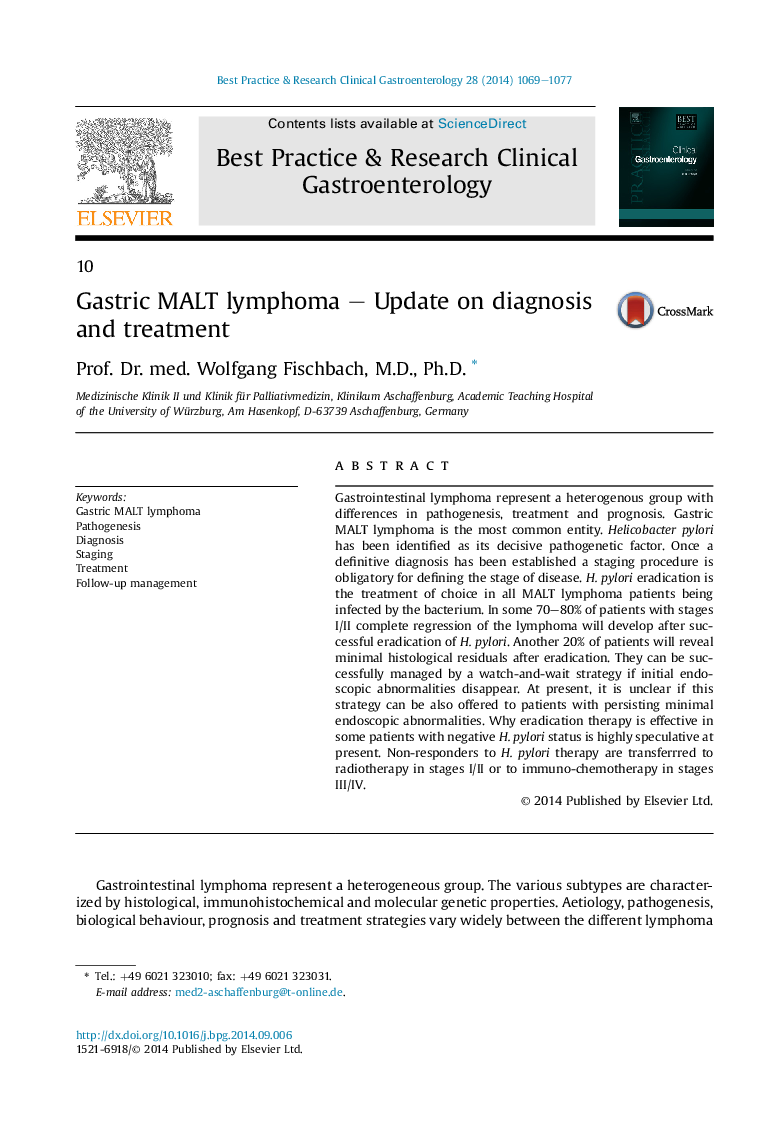| Article ID | Journal | Published Year | Pages | File Type |
|---|---|---|---|---|
| 3254075 | Best Practice & Research Clinical Gastroenterology | 2014 | 9 Pages |
Gastrointestinal lymphoma represent a heterogenous group with differences in pathogenesis, treatment and prognosis. Gastric MALT lymphoma is the most common entity. Helicobacter pylori has been identified as its decisive pathogenetic factor. Once a definitive diagnosis has been established a staging procedure is obligatory for defining the stage of disease. H. pylori eradication is the treatment of choice in all MALT lymphoma patients being infected by the bacterium. In some 70–80% of patients with stages I/II complete regression of the lymphoma will develop after successful eradication of H. pylori. Another 20% of patients will reveal minimal histological residuals after eradication. They can be successfully managed by a watch-and-wait strategy if initial endoscopic abnormalities disappear. At present, it is unclear if this strategy can be also offered to patients with persisting minimal endoscopic abnormalities. Why eradication therapy is effective in some patients with negative H. pylori status is highly speculative at present. Non-responders to H. pylori therapy are transferrred to radiotherapy in stages I/II or to immuno-chemotherapy in stages III/IV.
